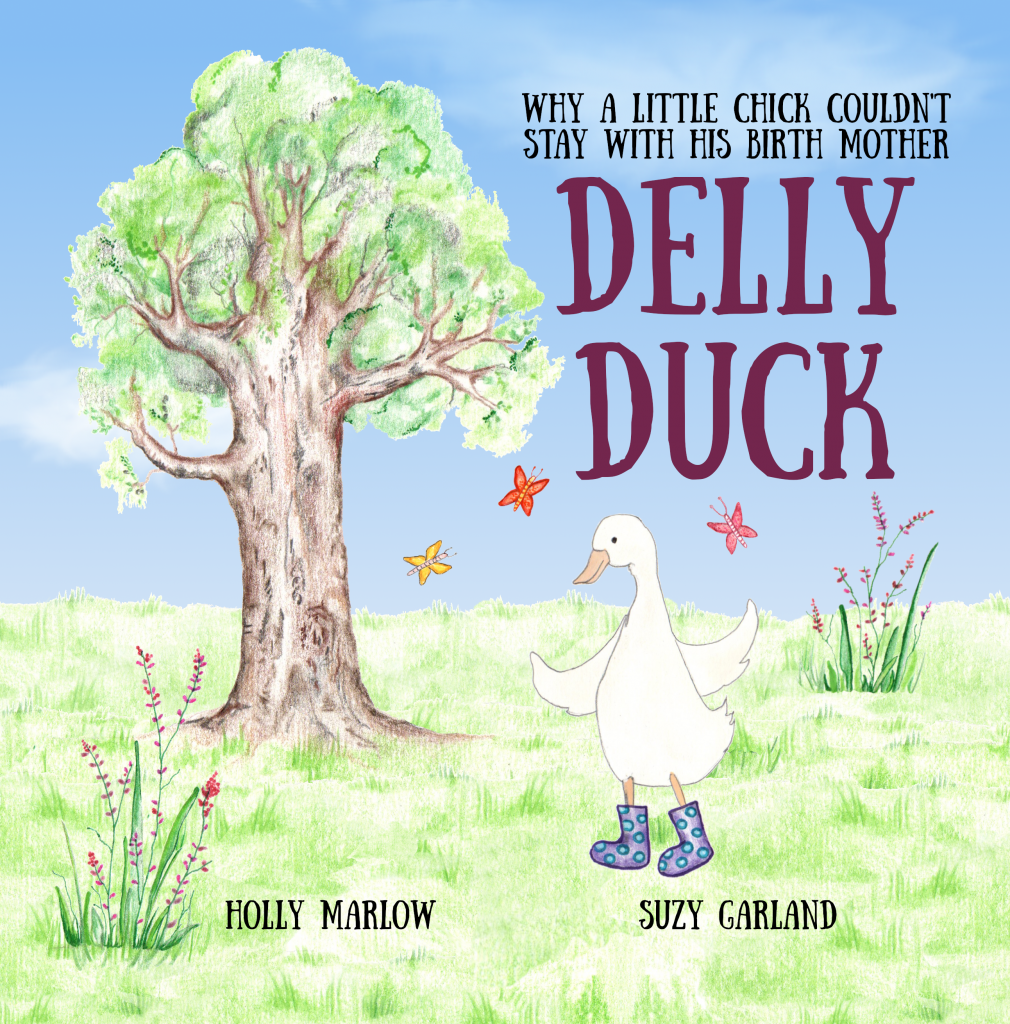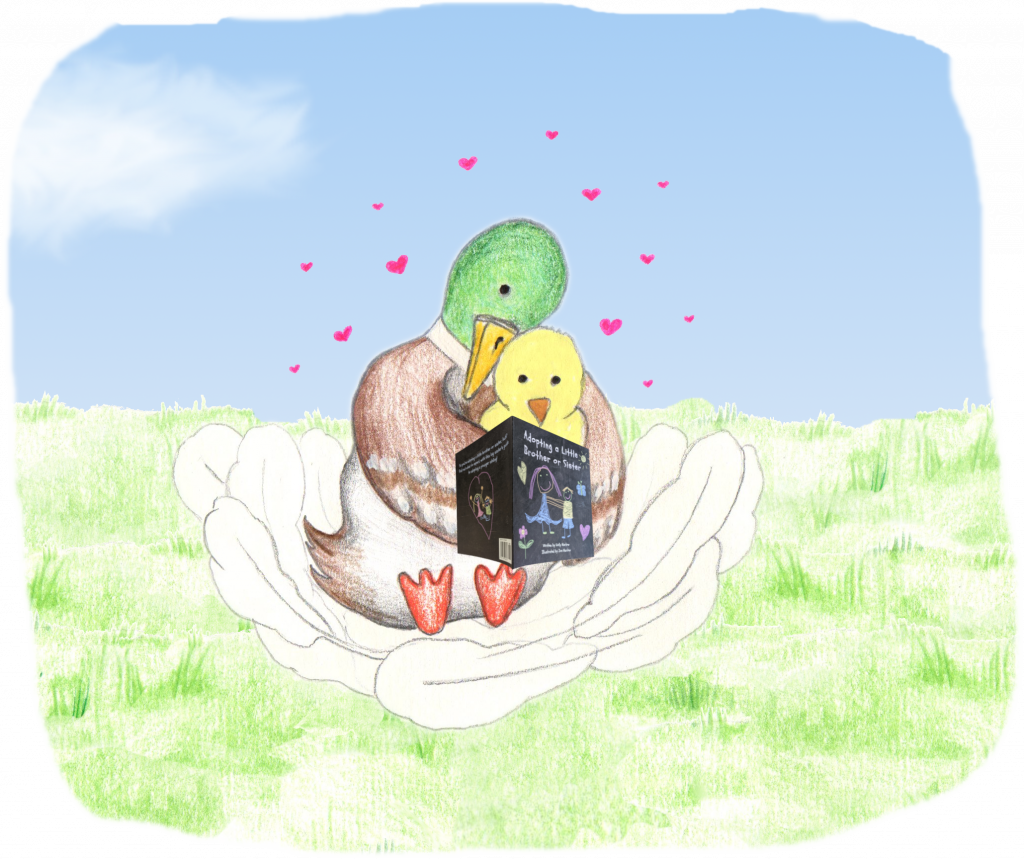Holly Marlow
Adoption, Fostering and Special Guardianship
A few people have asked me how I do therapeutic life story work with my almost 3 year old son to help him to understand and process his adoption story. A lot of people find it hard to know where to start, or how to pitch the story for a young child.
I started talking to my son about adoption a couple of weeks after he moved in. My strategy is to tell the story in simple terms from an early age, adding details gradually as his understanding grows. I’m hoping that it will help him to process things in smaller chunks, as that has helped some of my adopted friends.
We are waiting for his life story book to be completed. In the meantime, I’ve got a few photos of my son’s birth parents, and we have an album from his foster family that ends with photos of us during introductions, so I’m using those.
I have a family photo of us all framed right next to the photo albums. A couple of times a month (more often if he’s been emotional or rejecting me a lot), I ask if he wants to look at the photos. Occasionally he will suggest it himself, but 90% of the time I suggest it. If he’s up for it, I run through this sort of script (almost the same words each time, as he seems to like the routine of it, but adding a little more detail as he gets older!):
1. Pointing at family photo – “That’s our family! We’re the Marlows!” Then I point at each of us and ask him who is who, or ask him to identify us. He’s been able to do that for a long time, but I do it anyway to keep the routine and reinforce that we are a family.
2. Then I take out the photos of his birth family, who are cuddling him in the photos, and I say “that’s A! You grew in her tummy and then she cuddled you. And that’s B! He cuddled you when you came out of A’s tummy. You lived with them for a little bit, but they couldn’t look after you, so then you went to live with C (foster carer). Sometimes I’ll throw in facts like A likes dogs, B likes cars, etc, to try to humanise them a little more. I treasure the little snippets of information I have from social workers and the foster carer, which enable me to do this for my son.
More recently, I have started to add a bit more detail, like “the social worker realised that they couldn’t look after you, so the judge decided you should be adopted.”
3. Then I move on to the album from the foster family. Again, I ask him to identify them all and I say “you lived with them until you were 1! They looked after you and then the social worker found us to be your family.” We usually spend a few minutes looking at the photos and talking about what they did together and I always remind him that they loved him and looked after him.
4. Then I flick to the photos of our first meetings and say something like “This is when we met you! Now you’re in our family and you’re a Marlow! And I’m your Mummy, and Daddy’s your Daddy, and Zoe’s your big sister! And you’re my son and Daddy’s son and Zoe’s brother! We’re all in this family! We’re the Marlows!” etc. I make it a bit repetitive, in the hopes that it sinks in! He sometimes pipes up with “we all live here and we all love each other,” which I adore. ![]()
I read my book, “Delly Duck: Why A Little Chick Couldn’t Stay With His Birth Mother” to him (which can be found on Amazon if you search for the title or “Holly Marlow”). I wrote it partly for this purpose and partly to explain adoption to his big sister. I say things like “Little Chick was adopted like you!” and “Caring Goose found the right family for him, just like the social worker found us to be your family!” and “Quill is his family now, like I’m your Mummy!”

I make sure we watch TV that includes adoption, or families that could be formed through adoption, e.g.
– Chip and Potato (season 3 has gay zebra Dads)
– Bug Diaries (2 worm Mums – although science does permit for worm mamas to start a family without any male involvement, I surmise that they might have adopted their children)
– Hey Duggee (the crocodile has an elephant Mum)
– Dinosaur Train (Buddy is adopted as an egg and doesn’t know much about his history)
– The Ice Princess (a dinosaur is adopted by a bird)
So when these things are on, I point it out, often with quite a ramble if it’s not obvious, e.g. “look, he’s got 2 Dads, but you can’t grow in a man’s tummy can you, so maybe he grew in someone else’s tummy like you did and now he’s adopted!”
I casually talk about my son’s birth parents’ interests that I’m aware of, e.g. a social worker told us what kind of music birth father is into, and noted down a couple of his favourite bands, so I can play that music to my son and tell him that his birth father likes it. Although I haven’t managed to get through a song yet, as my son requests his favourite nursery rhymes instead! ![]()
When we do role play with dinosaurs or dolls, we put them into families, then decide which of them “grew in their Mum’s tummy,” which were adopted and which are the foster families. It all helps to normalise adoption and understand the process. He’s even starting to talk about what he thinks the dinosaurs might be feeling as the baby one moves from birth family to foster family, to adoptive family.
In a way, we even do little snippets of life story work whenever we cross a road or talk about healthy eating, because we talk about how we are his parents and so it is our responsibility to keep him safe and help him to be healthy.
Something else I’m trying recently is to show my son that his story will continue far into the future with our family, to reinforce that we are his family now. When I’m talking about anything in the future, I try to find a way to mention our family. For example, my son told me he’s going to buy an orange car when he grows up, so I said I am excited to see it and I asked him if he will drive me to places. We talked a lot about the different places he will take me to, and our other family members. Sometimes we talk about where we will go when he has children, and I say things like “you like this soft play, don’t you? When you have children, we can bring them here! I will be their Grandma!” My daughter is the best at this, as she often talks about her future and always includes her little brother in her big plans.
I think it will get harder as he understands more and starts to feel more emotions about it. I’m hoping that this approach enables him to process it in manageable chunks, and that he knows he can always ask us about his biological family.
